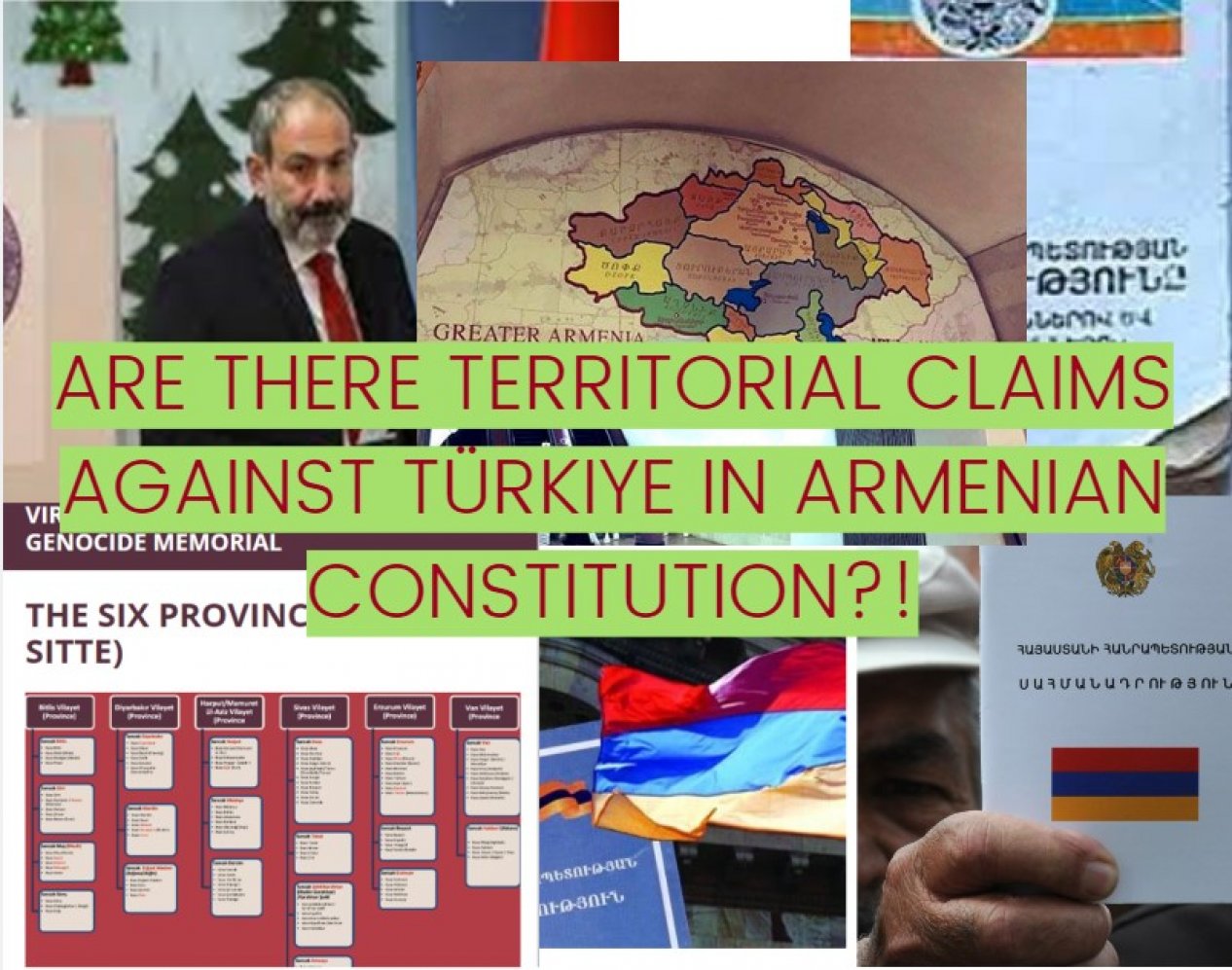
According to the statement made by the Presidential Administration of Azerbaijan, President of the Republic of Azerbaijan Ilham Aliyev received Secretary General of the Inter-Parliamentary Union Martin Chungong. During the meeting, Ilham Aliyev stated that there was a hostile attitude towards Azerbaijan in the Parliamentary Assembly of the Council of Europe (PACE).
Emphasizing that this attitude of PACE contradicts the basic principles of the organization, the head of state emphasized the importance of restoring the rights of the Azerbaijani delegation and pointed out that if the rights of the Azerbaijani delegation are not restored, Azerbaijan will reconsider its participation in the Council of Europe and the European Court of Human Rights.
Additionally, Azerbaijani President Ilham Aliyev made statements about Azerbaijan-Armenia relations. Aliyev said that peace has actually been established between Azerbaijan and Armenia and that the situation on the border of the two countries has been peaceful for several months.
The head of state underlined that there is already de facto peace between Azerbaijan and Armenia, and a state of peace has prevailed along the border of the two countries for several months. “Yet, to deliver a logical conclusion to this process, a peace treaty must be signed, and Armenia’s territorial claims against Azerbaijan must be brought to an end.”
Aliyev noted that peace between Baku and Yerevan can only be achieved after amendments are made to the Armenian Constitution and other legal documents.
Faktyoxla Lab. has investigated whether there are territorial claims against neighboring states in the Armenian Constitution.
First of all, the incident started when Armenian Prime Minister Nikol Pashinyan said that Armenia needed a new Constitution, not a constitutional amendment, while the report on the 2023 activities of the Armenian Ministry of Justice was being discussed. In his speech, Pashinyan said, “The world is changing, our region will inevitably change, no matter what we think about this evolution, the Republic of Armenia will also change and must change. And in this case, we should not stop this evolution, which is illogical in itself, on the contrary, we should manage the situation in line with Armenia’s interests.”
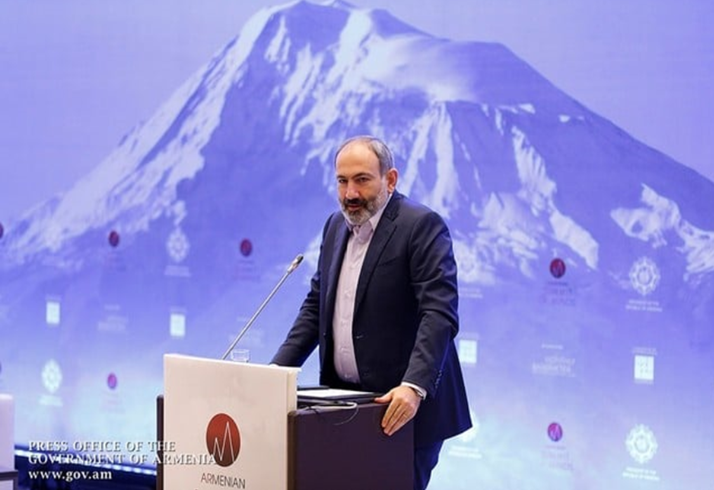
Now let’s talk about whether there is indeed any article in the Armenian Constitution, either in its original text or in its later amended text, confirming Armenia’s territorial claims against neighboring states. Article 1 of the Constitution of Armenia states: “The Armenian people fulfill the sacred commandment of their freedom-loving ancestors for the restoration of sovereignty, based on the fundamental principles of the Armenian state and the national goals established in the Declaration of Independence of Armenia. Guaranteeing the freedom of generations, general welfare, civil solidarity and universal values, the state adopted the Constitution of the Republic of Armenia, in the hope of fidelity, remaining faithful to the strengthening and prosperity of the Motherland. (source)
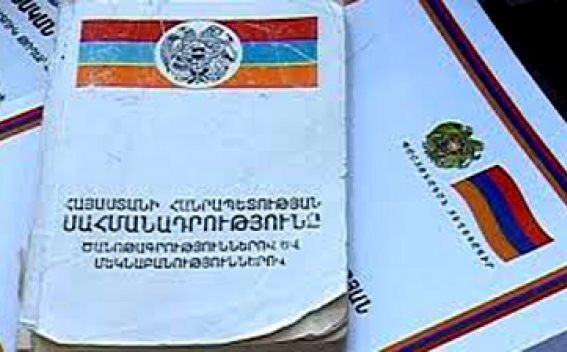
The "Declaration of Independence of Armenia”, which is mentioned as the source of universal values in Article 1 of the Constitution, was prepared by the Supreme Soviet of the Armenian SSR on August 23, 1990. The declaration is the first document that changed the name of the Armenian SSR to the Republic of Armenia and officially declared the country’s independence.
Article 11 of the Declaration states that “The Republic of Armenia supports the duty of international recognition of the 1915 Genocide committed in Ottoman Türkiye and Western Armenia.”
While talking about the lands called “Western Armenia” on the website of the Armenian Ministry of Foreign Affairs, it is stated that according to the 1914 Russia-Türkiye Treaty, two European governors were appointed to the provinces In the territory of Western Armenia (note: Yeniköy). According to the agreement, these provinces are Van, Bitlis, Harput, Diyarbakir, Trabzon, Erzurum and Sivas. Needless to say that the region referred to by Western Armenia is the territory of today’s Türkiye.
According to other sources of Armenian origin, the “Western Armenia” territorial unit mentioned in the declaration covers the 6 eastern provinces of the Republic of Türkiye (Erzurum, Van, Bitlis, Diyarbakir, Harput and Sivas). (source)
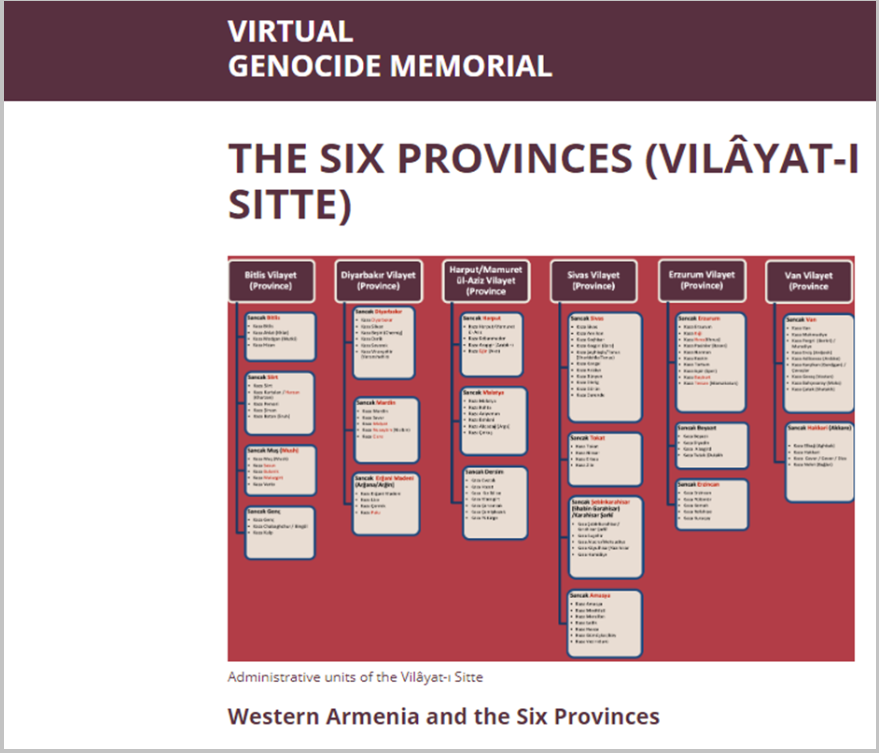
In addition, it is stated in the Declaration of Independence that the Declaration is based on the joint decision of the Supreme Soviet of the Armenian SSR and the Karabakh National Council, which was called “Artsakh” by the Armenians at the time, on the “unification of the Armenian SSR and the Nagorno-Karabakh Province” dated December 1, 1989. At that time and afterwards, Nagorno-Karabakh State was not recognized as a state by the international community.
The Constitution of Armenia declares that the national values included in the Declaration of Independence are taken as the main target. The declaration, an act of high legal value adopted on behalf of the state, calls the eastern provinces of the neighboring Republic of Türkiye “Western Armenia” and is based on a common decision regarding the unification of the Nagorno-Karabakh Province. But neither the place called Western Armenia nor the so-called Nagorno-Karabakh Republic, are recognized as a state, including Armenia, or by the international community. This situation shows that Armenia has made a territorial claim to the neighboring state at the Constitutional level.
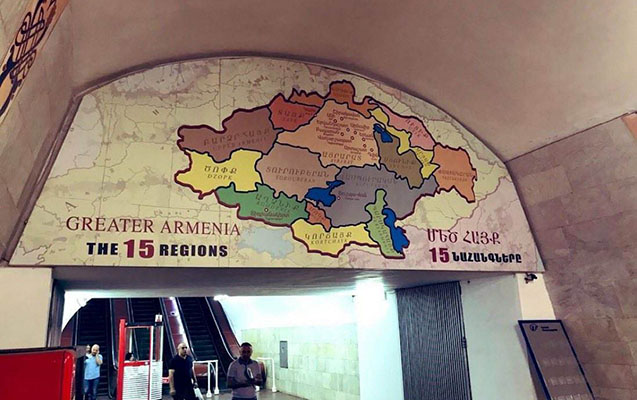
In 2017, Hikmet Hajiyev, the spokesperson for the Azerbaijani Ministry of Foreign Affairs at the time, stated that Armenia, after gaining its independence, put forward territorial claims against neighboring states with the dream of establishing a “Greater Armenia” instead of establishing good relations with neighboring states. Reminding that Armenia started a war and occupied 20 percent of Azerbaijani lands, Hajiyev said, “The Armenian constitution clearly makes territorial claims against Türkiye. Also, Armenia has similar claims against its neighbors Iran and Georgia,” he said.
Hajiyev also said, “Armenia is facing a socioeconomic and demographic crisis. While this is the case, the Yerevan administration is trying to deceive the Armenian people and maintain its power by portraying Azerbaijan and Türkiye as enemies.”
During our research, we determined that the Armenian opposition perceived the country’s president’s speech on the new Constitution as an attempt to meet the demands of Azerbaijan and Türkiye.
According to Armenian political scientist Andrias Gukasyan, who believes that the current Constitution has nothing in common with the Armenian Declaration of Independence,

Relations with Türkiye could be established by Türkiye’s recognizing the Armenian Genocide, which Armenia claims took place in the Ottoman Empire in 1915-23: “In addition, the new Constitution includes provisions on the country’s national security system and foreign policy, such as Armenia’s international neutrality.” Less important assumptions that would allow changing the policy factor should not be included. “This will allow Armenia to have not one but several security guarantors,” Gukasyan noted. According to him, these are not issues of current politics, but fundamental issues of the Armenian state, so they should be included in the country’s Constitution.
In this case, according to him, Nikol Pashinyan personally established the Constitutional Commission and initiated the Constitutional amendment himself. The analyst said, “The new Constitution is the establishment of a new state. However, this is contrary to his decree regarding the establishment of this commission, its aims and objectives. “This commission does not have the mission of writing a new Constitution,” he said, emphasizing that the issue is against the law and therefore Armenia needs territorial claims to exist.
“It is impossible to regulate foreign relations by changing the Constitution,” the analyst said at the end.
Among those who object to the issue is political scientist Alexander Kananyan. The political scientist argues that Prime Minister Nikol Pashinyan and his government have adopted the path of final and unconditional waiver of all rights of the Armenian people: “In return for these concessions, the authorities expect to beg for peace and recognition from the Turkish environment within the borders of 29,800 km2. The Armenian Constitution has been amended unjustly frequently before, and these changes served the commercial interests of one team or another. But in all the Constitutions there was a provision that Artsakh (i.e. Karabakh) was a part of the inseparable integrity of the existing Armenian state.”

Kananyan stated that the new Constitution will also change the coat of arms of Armenia, but here it will primarily be about “deleting from the coat of arms the regions that are not under the control of modern Armenia”: “This is clear that Armenia will eliminate the consequences of the Genocide and refuse to restore the rights of Armenians.” It will be an indicator. However, the process will not end here; The next step on the basis of the new Armenian Constitution will also provide for criminal liability for voicing territorial demands. If under these conditions any political force, public figure, cultural figure puts forward an agenda, for example, that Nakhchivan should become part of Armenia or that Artsakh should be illegally occupied by Armenia and become part of the Republic of Armenia, then this will be followed by criminal liability.” ( source)
Political scientist Stepan Grigoryan says that the Declaration of Independence, which is accepted as the basis of the Constitution, contains “painful points” for Türkiye: “In addition to what was written about the unification of Armenia and Nagorno-Karabakh, there are also Türkiye’s actions in Western Armenia and Anatolia and there is also an article about the recognition of genocide.”
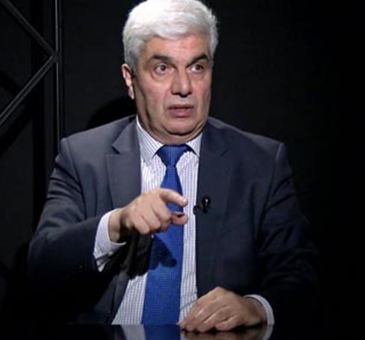
According to Grigoryan, it is necessary to fully understand what changes Pashinyan is considering, whether they are needed or whether all these are being done under pressure.
According to him, the new constitution contains important changes. The expert wonders how the prime minister will imagine a new constitution if its main provisions do not change, if the governance model does not change. (source)
Conclusion:
- Since the day it gained its independence, Armenia has constantly expressed its territorial claims against Azerbaijan and Türkiye;
- Azerbaijani President Ilham Aliyev’s statement “Armenia must end its territorial claims against Azerbaijan” is an indication of the beginning of a new era in the region;
- By saying that the country needs a new Constitution, the Armenian prime minister shows that he understands that the country’s administration must give up its territorial claims against Türkiye and Azerbaijan;
- Despite the opposition of the Armenian diaspora and the opponents in the country, a new Constitution draft will probably be prepared in the country.




















